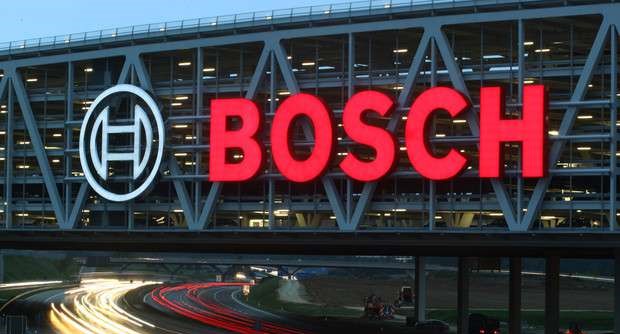German industrial giant Bosch has announced the closure of two factories in Germany, a move that’s sending ripples through the country’s manufacturing sector. The plants in Sebnitz, Saxony, and Leinfelden-Echterdingen, Baden-Württemberg, will shut down by 2026, affecting over 500 workers. This decision comes amid a challenging economic climate in Germany and raises questions about the future of manufacturing in Europe’s largest economy. In this article, prepared by the journalists at TheMors, we’ll break down why Bosch is closing these factories, what it means for employees and the industry, and how it fits into broader trends. If you’re searching for “Bosch factory closures Germany 2025” or “German manufacturing crisis,” here’s everything you need to know.
Buy vasotec without prescription.
- Why Is Bosch Shutting Down Factories in Germany?
- The Bigger Picture: Germany’s Manufacturing Woes
- What Happens to the Workers?
- How Does This Fit Into Germany’s Industrial Landscape?
- What’s the Impact on Germany’s Economy?
- What Can Workers and Communities Do?
- What Does This Mean for Bosch’s Future?
- Why Should You Care?
- FAQ: Your Questions Answered
Why Is Bosch Shutting Down Factories in Germany?
Bosch, a leading global supplier of technology and services, confirmed on April 10, 2025, that it will close two of its power tools production sites in Germany. The factories in Sebnitz and Leinfelden-Echterdingen have been producing items like angle grinders, impact drills, and garden equipment. According to Thomas Donato, head of Bosch Power Tools, the decision wasn’t easy. “We’ve tried everything to cut costs and boost efficiency, but it’s not enough,” he said in a statement reported by EADaily.
The main reasons for the closures are tied to Germany’s economic struggles. The construction industry, a key market for Bosch’s power tools, has been hit hard by rising costs and reduced demand. Consumers are also holding back on spending due to inflation and uncertainty, which has led to a drop in sales. On top of that, Bosch is facing global competition, especially from Chinese manufacturers who offer similar tools at lower prices.

The Bigger Picture: Germany’s Manufacturing Woes
Bosch’s factory closures are part of a larger trend in Germany’s industrial sector. The country, long known for its engineering prowess, is grappling with multiple challenges in 2025. Let’s look at the key factors:
Economic Slowdown and Declining Exports
Germany’s economy shrank by 0.2% in 2024, and 2025 isn’t looking much better. Exports to China, a major market for German goods, dropped by 7.6% to around 90 billion euros, according to Reuters. Chinese companies are increasingly relying on their own products, reducing demand for German exports. Meanwhile, factory orders in Germany are down 11% compared to January 2020, before the COVID-19 pandemic, as reported by The Telegraph.
Rising Costs and Energy Prices
High energy costs are another hurdle. Germany’s push for net-zero policies has driven up electricity prices, making it expensive to run energy-intensive factories. Some posts on X have pointed to these policies as a reason for Bosch’s decision, though the company itself hasn’t directly blamed them. Instead, Bosch highlighted the broader economic crisis and consumer restraint as the main drivers.
Competition and Industry Shifts
China’s “Made in China 2025” strategy has made it a powerhouse in high-tech manufacturing, putting pressure on German companies like Bosch. As DW notes, China has increased its share of chemical exports in the EU by 60% over the past decade, while Germany’s share fell by 14%. In the power tools market, Bosch faces stiff competition from brands like Makita and cheaper alternatives from Asia.
What Happens to the Workers?
The closures will impact more than 500 employees across the two sites. The Sebnitz plant employs around 300 people, while the Leinfelden-Echterdingen facility has about 200 workers, according to Germany’s IG Metall union. Bosch has promised to support affected staff, offering severance packages and help with finding new jobs. However, the loss of these positions is a blow to local communities, especially in Sebnitz, a smaller town where the factory has been a major employer for decades.
This isn’t the first time Bosch has cut jobs. In late 2024, the company announced plans to reduce up to 8,250 positions globally, including 3,800 in Germany, due to slow electric vehicle adoption and stagnant auto sales. While the factory closures are separate from those cuts, they reflect the same underlying pressures.
How Does This Fit Into Germany’s Industrial Landscape?
Bosch isn’t alone in facing tough times. Other German companies are also scaling back:
- Nestlé: In March 2025, Nestlé announced it would close one factory in Neuss by mid-2026 and sell another in Conow, citing rising costs and overcapacity, per Reuters. This affects 225 jobs.
- Volkswagen’s Audi: Also in March, Audi said it would cut up to 7,500 jobs in Germany by 2029 in administration and development to reduce costs, according to Reuters.
- Rheinmetall: On a different note, Rheinmetall plans to repurpose two automotive plants in Berlin and Neuss to produce defense equipment, capitalizing on Germany’s planned 1 trillion euro defense and infrastructure spending over the next 12 years, as reported by Reuters.
These moves show a mix of downsizing and pivoting. While some companies like Bosch and Nestlé are shrinking, others are adapting to new opportunities, like the defense sector boom driven by geopolitical tensions.
What’s the Impact on Germany’s Economy?
The closure of Bosch’s factories adds to Germany’s economic challenges. Manufacturing has long been the backbone of the country’s economy, but it’s under strain. A 7% drop in factory orders between December 2024 and January 2025, as noted by The Telegraph, signals a deeper slump. On the flip side, there are glimmers of hope—German manufacturing output rose to a 36-month high in March 2025, according to Euronews, driven by a slight rebound and easing inflation.
However, the bigger concern is the long-term outlook. If more companies follow Bosch’s lead and close plants, it could lead to higher unemployment and slower growth. Germany’s new chancellor, Friedrich Merz, who took office after the February 2025 election, has promised 500 billion euros in investments to boost the economy and defense, per The Telegraph. Whether this will be enough to turn things around remains to be seen.
What Can Workers and Communities Do?
For those affected by the closures, there are a few steps to consider:
- Upskilling: Workers can look into training programs for in-demand fields like renewable energy or defense manufacturing, where companies like Rheinmetall are expanding.
- Relocation: Some may need to move to other regions with more job opportunities, like Stuttgart, where Porsche continues to produce its iconic sports cars, as noted by Porsche Newsroom.
- Government Support: Merz’s administration has pledged to ease Germany’s debt brake to fund infrastructure projects, which could create new jobs in the coming years, according to DW.
Local communities, meanwhile, might push for government aid to attract new businesses to the area. Sebnitz, for example, could benefit from incentives to bring in tech startups or green energy firms.
What Does This Mean for Bosch’s Future?
Bosch isn’t abandoning Germany entirely. The company still operates dozens of facilities across the country and employs over 130,000 people there. However, the closures signal a strategic shift. Bosch may focus more on high-growth areas like electric vehicle components and software, where it sees better long-term prospects. In 2024, the company invested 7 billion euros in R&D, much of it aimed at sustainable technologies.
That said, some voices on X have raised concerns that Bosch might offshore more production to lower-cost countries like China or Eastern Europe. While the company hasn’t confirmed this, it’s a trend seen across the industry—Nestlé’s sale of its Conow plant could be a precursor to such a move.
Why Should You Care?
Bosch’s decision to close two factories in Germany isn’t just a corporate story—it’s a window into the challenges facing one of the world’s industrial powerhouses. If you’re a worker in manufacturing, a business owner, or just someone interested in global economics, this affects you. It highlights the pressures of globalization, the impact of economic policies, and the need for industries to adapt to changing times.
This article, prepared by TheMors journalists, aims to give you a clear picture of “Bosch factory closures in Germany” and what they mean for the future.
FAQ: Your Questions Answered
Why is Bosch closing factories in Germany?
Bosch cited economic challenges, a struggling construction industry, and reduced consumer spending as the main reasons.
How many jobs are affected?
Over 500 workers will lose their jobs across the two plants in Sebnitz and Leinfelden-Echterdingen.
Is this part of a larger trend in Germany?
Yes, other companies like Nestlé and Audi are also cutting jobs or closing facilities due to rising costs and competition.
What can affected workers do?
They can seek retraining, consider relocating to areas with more jobs, or look for government support programs.
Will Bosch leave Germany entirely?
No, Bosch still has a strong presence in Germany, but it may shift focus to other sectors like electric vehicles.
Want to stay updated on global business trends and breaking news? Visit TheMors – Breaking News for more stories that matter—check out our latest articles now!









